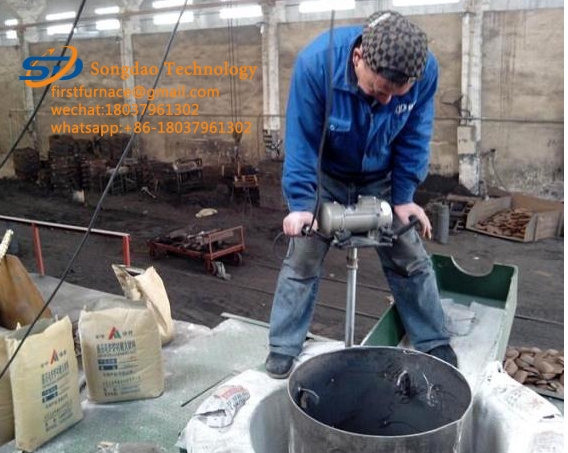- 21
- Dec
Ramming material manufacturers explain the role of refractory ramming materials in detail
Ramming material manufacturers explain the role of refractory ramming materials ໃນລາຍລະອຽດ
Main products: wall lining of intermediate frequency furnace, special furnace wall lining for coreless induction furnace (intermediate frequency furnace), insulating mortar, covering agent, slag remover, castable, ramming material and other products. Let’s focus on the fire-resistant ramming materials:
Refractory ramming material is made up of a high proportion of granular materials and a very low proportion of binders and other components. It is even composed of granules and powder materials. It must be constructed by strong ramming. material.
Because the ramming material is mainly used for direct contact with the melt, it is required that the granular and powder materials must have high volume stability, compactness and corrosion resistance. For induction furnaces, they should also have insulation.
The bonding agent of the beating material should be selected appropriately, some do not use bonding agent, and some only add a small amount of flux. Acidic ramming materials are commonly used as binders such as sodium silicate, ethyl silicate, and silica gel. Among them, dry ramming materials are mostly borate; alkaline ramming materials are commonly used in magnesium chloride and sulfate; Higher carbon can form carbon-bonded organics and temporary binders at high temperatures. Among them, dry ramming material is added with an appropriate amount of iron-containing flux. Chromium ramming materials are commonly used as manspins.
Compared with other unshaped refractory materials of the same material, the ramming material is dry or semi-dry and loose. The compact structure is obtained by strong ramming. Only when heated to the sintering temperature, the combined body will have strength. After the ramming material is formed, different heating methods can be adopted to promote hardening or sintering according to the hardening characteristics of the mixture.

